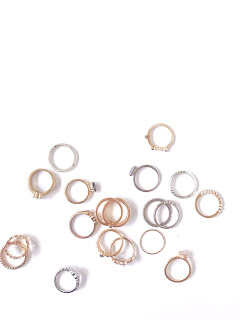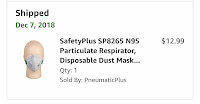It Feels Like All The Dystopian Novels and Movies are Coming True Right Now
 |
| Current temperature: 101. But yes, I still put on lipstick. |
The first dystopian novel I ever read was George Orwell’s “Nineteen Eighty-Four.” I read it in grade school, when that year was still in the future. I graduated from high school in 1984; a fitting year for me to come of age.
I went on to devour dystopian fiction like there was (wait for it) no tomorrow. Still in high school, I believed I recognized the boys in William Golding’s “Lord of the Flies.” I particularly remember congratulating myself for my superior taste in literature because Golding won the Nobel Prize in Literature in 1983, just as I had finished reading and praising the book. Clearly, I was miles ahead of the uncivilized masses surrounding me.
Then I went to college. As a journalism major and English minor, I made many friends with proudly pretentious tastes. Thus I was introduced to Kurt Vonnegut’s “Player Piano” and Ray Bradbury’s “Fahrenheit 451” and Anthony Burgess’ “A Clockwork Orange.” I loved Aldous Huxley’s “Brave New World” and George Orwell’s “Animal Farm.” At some point I began deliberately searching out dystopian books and read dozens of them. (Check out this pretty decent list that includes both popular and literary works if you want to do the same. Unless you’re a health care provider, you no doubt have time right now. Just download them.)
More recently, after the last presidential election, I finally got around to reading Sinclair Lewis’ chilling “It Can’t Happen Here.” And I re-read Margaret Atwood’s “The Handmaid’s Tale.”
Perhaps my favorite is Stephen King’s “The Stand.” I’ve read this book several times, including after the last presidential election, because I couldn’t stop thinking about one very prescient section. You’ve probably already read the book, and if you haven’t, you will, so I’m not going to retell the whole story. But remember when one of the women in Boulder goes undercover to Las Vegas to spy and finds, to her surprise, that she quite likes one of the other women there? She realizes that if they had met before the pandemic that they would have been friends. She’s on the wrong side, but she isn’t evil. (And there are some bad actors on the right side, as well. Good and evil are never absolute.)
The Las Vegas people can be understood as Trump followers, and King recognised them for what they are back in the 1970s. Moreover, another Boulder resident notes that it’s likely the Las Vegas people had managed to get their electricity back up first, because they would have drawn more of the technical people. There are two profoundly different ways of viewing the world, and if you know and love any Trumpers, you will recognize how deeply insightful King’s understanding of human nature is.
In recent years, dystopian-themed movies have been second only to superhero movies, and it’s easy to see why: We all recognized, deep down, that our society was doomed, and we longed for a hero to save us.
But there is no hero ready to swoop down and put things right. In fact, the opposite is true: Around the world, we’re seeing a rise in right-wing authoritarian rulers. The Las Vegas folk are in charge, and now comes a pandemic the likes of which we have not seen in (almost exactly) 100 years.
As I write this, on March 20, 2020, I have a fever, runny nose, fatigue and body aches. I may or may not have Covid19, and will never know, because my country inexplicably decided not to use the World Health Organization’s tests. I don’t intend to leave my house for the duration, which is no hardship for me because I enjoy solitude, I work from home and I stocked my pantry in mid-February, when I first saw this coming. (But I left home to help care for ill family members for a few days and that’s probably when I caught whatever I have.)
I started warning people a month ago that they should stock up on necessities. Nobody around me heeded my warnings, of course. But all my reading of dystopian novels, plus my former-journalist habit of actually reading international news, meant I was prepared. There are very few cases of Covid19 cases in my area, officially, but I understand that it’s extremely likely that within a couple of weeks the number of cases will boil over and overwhelm our health care system’s ability to cope. Shit’s about to get real.
We have grown accustomed to feeling protected in this country. That’s why 9-11 was such a shock; bad things like that happen in other countries, not ours. We don’t starve. We don’t fear bombs landing on us. We don’t think it’s possible that we will be unable to procure necessities for our children. We are Americans, damn it! We are immune from disaster. We have the mightiest military in history, and besides, God is on our side.
We responded to 9-11 with more guns and more God. Now we have a pandemic that is on the verge of boiling over and teaching us a very hard lesson: We are not immune to tragedy. In fact, our false belief in American Exceptionalism will harm us. We could have taken protective steps in January, but we elected leaders whose short-sighted choice was to put the economy first. As a result, our economy is going to suffer far worse than was necessary, and far more people will die.
This is our great chance. We can change. We can recognize that all of humanity has worth, regardless of our gender, race, religion, economic status, citizenship or anything else. We must stop considering ourselves better or more worthy of care than others. We are all in this together. The health and well-being of your neighbor has always had an effect on you, but now it’s obvious.
We don’t have the option of going off and living in a cabin in the woods alone. We are all interconnected and need each other. How many survival skills do you have? Could you grow all your own food, or make all your own clothing or build your own home? Could you make all your own medicine? Could you warm your home with wood you chopped yourself? You might be able to do one or two of these, but not all of them. Would you even want to? I don’t. I bake my own bread but I don’t grow my own wheat. I know how to forage for some wild foods but I’d rather eat vegetables grown by a farmer. I can make a few home remedies from herbs I grow myself but I’ve been gratefully popping acetaminophen the last few days.
The standard of living we enjoy depends on everyone specializing in one particular thing. Bankers need the bakers, and hedge fund managers need the farmers, and doctors need the factory workers. All of us need all of us, so this is a good time to think about things like respecting the work of those who perform the basic tasks of cooking and cleaning by paying them a living wage.
The sooner we start actually recognizing and respecting each other’s humanity, the sooner we can restructure our society to serve the needs of all of us.
Some dystopian tales end on a hopeful note; others do not. But this isn't a story; it’s real life, and it will go on. What do we want to see in the sequel?


Comments
Post a Comment